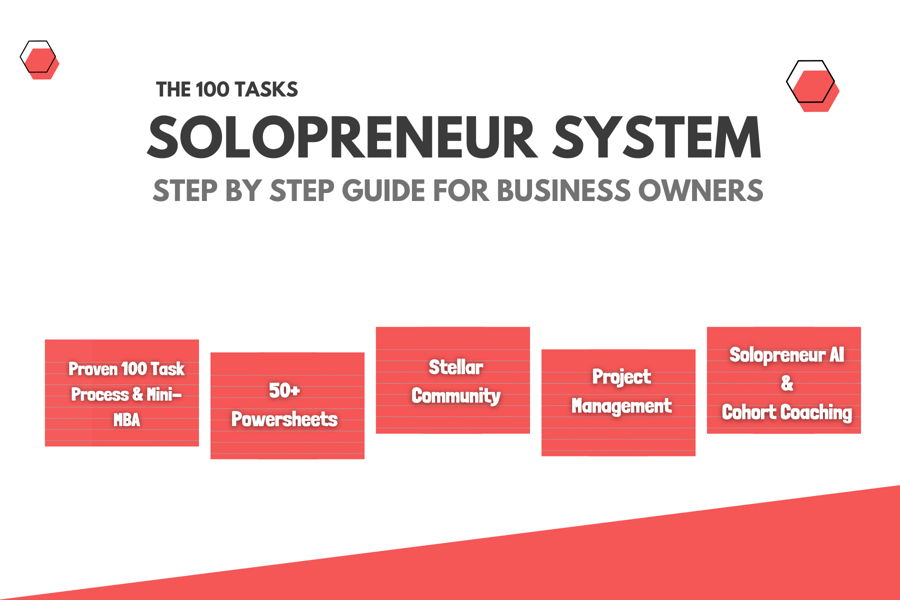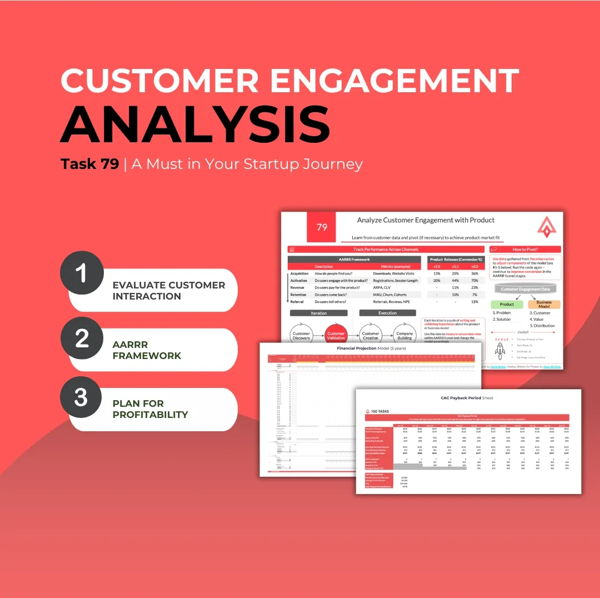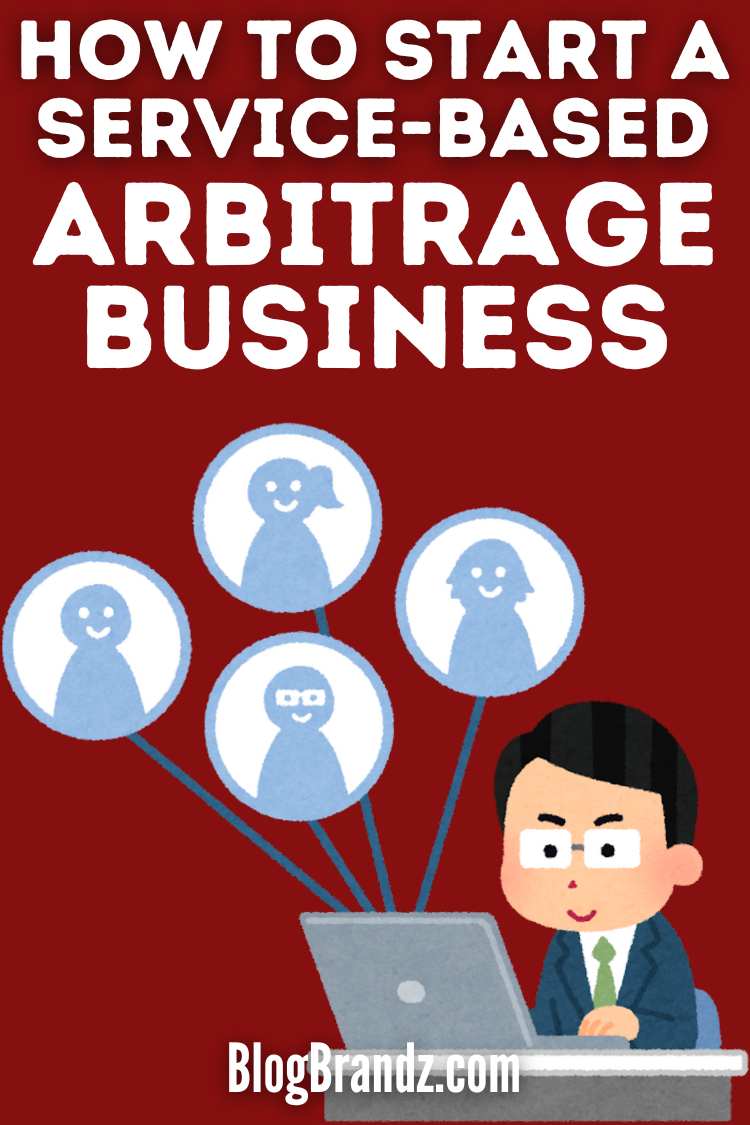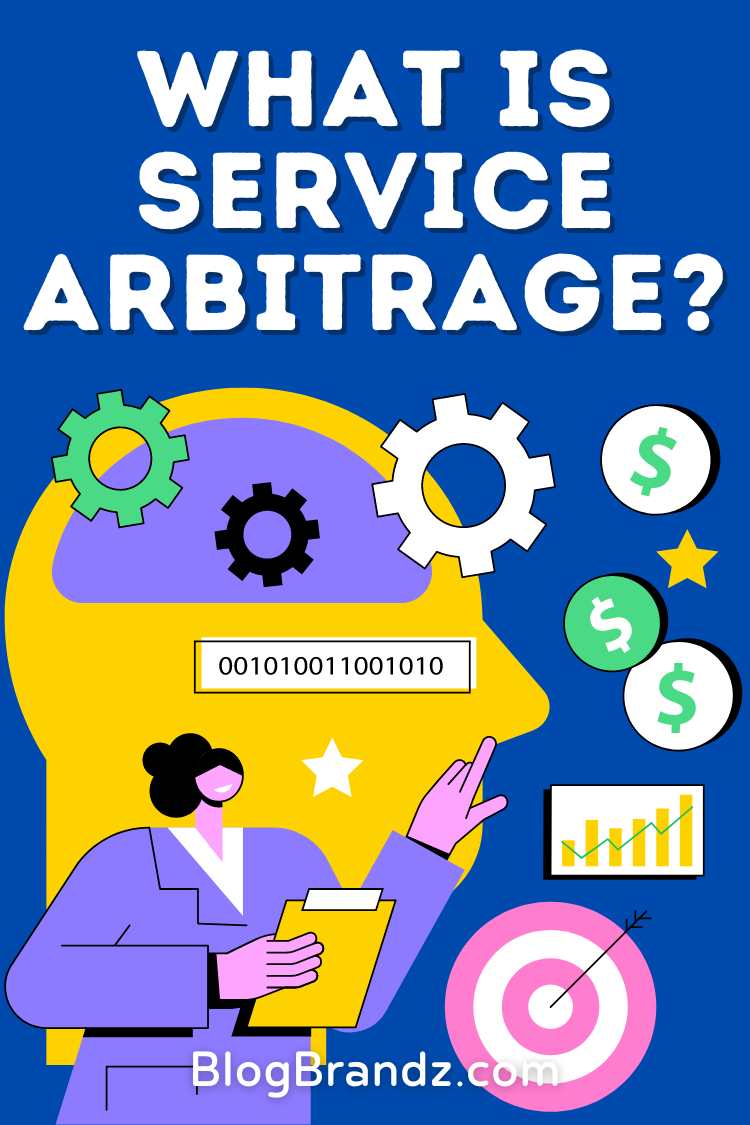Discover lucrative service arbitrage niches and contractor arbitrage business ideas to start a profitable service arbitrage business.
Starting a contractor or service arbitrage business can be lucrative and offers a platform to connect clients with freelance professionals while leveraging your expertise.
Contents
- What is Contractor Arbitrage?
- Benefits of the Service Arbitrage Business Model
- How To Start a Service Arbitrage Business
- What are the Best Service Arbitrage Niches?
- 11 Profitable Service Arbitrage Business Ideas
- #1. Social Media Management Agency
- #2. Virtual Event Planning
- #3. Content Marketing Agency
- #4. Website Development Agency
- #5. Online Advertising Agency
- #6. Graphic Design Studio
- #7. IT Support Services
- #8. Language Translation Services
- #9. Video Editing Services
- #10. Virtual Assistant Agency
- #11. Cloud Broker Service Arbitrage
- 3 Levels Of Contractor Arbitrage
- Is Service Arbitrage Legal?
- Business Tips & Tutorials
What is Contractor Arbitrage?
Contractor arbitrage is also known as freelance arbitrage or service arbitrage – meaning a business model where a company acts as an intermediary between clients and service providers (typically freelancers or independent contractors).
In the service-based arbitrage business, the arbitrageur secures work from clients and outsources the tasks to contractors or freelancers, often at a lower cost. They profit by charging a markup on the services, and the difference between what the client pays and what the contractor charges is the profit for the arbitrageur.
In service arbitrage, the company’s value proposition lies in its ability to find, vet, and manage service providers, and expertise in matching the right providers with the client’s needs.
The company may also provide additional services such as project management, quality assurance, and customer support. The service arbitrage business model can be found in various industries, including marketing, design, writing, and IT services.
Service-based arbitrage requires a good understanding of the market, how to source and manage talent, and a strong focus on customer satisfaction to succeed. It allows businesses to scale operations and take on more projects without needing a large in-house team.
As a solopreneur, it lets you showcase your expertise online, engage with clients to determine their needs, collaborate with skilled freelancers to deliver top-notch services, and ultimately generate profit from the margin between the client’s payment and the freelancer’s fee.
Click here to get the 100 Tasks Solopreneur Course
Benefits of the Service Arbitrage Business Model
Service arbitrage offers several benefits over solopreneurship and freelancing:
- Scalability: Service arbitrage allows you to scale your business by outsourcing work to freelancers, enabling you to take on more clients and projects than you could handle alone as a solopreneur.
- Diverse Skillsets: By working with a network of freelancers, you can offer a wider range of services, making your business more attractive and competitive.
- Efficiency: Service arbitrage allows you to focus on managing and growing your business while allowing freelancers to handle day-to-day tasks, increasing efficiency and productivity.
- Income Potential: With service arbitrage, you can earn income from both your work and the freelancer’s work, increasing your earning potential compared to freelancing alone.
- Risk Mitigation: By diversifying your client base and outsourcing work to freelancers, you can mitigate the risk of relying on a single source of income or client.
The service arbitrage business model offers the opportunity to build a scalable and profitable business by leveraging the skills and expertise of freelancers.
How To Start a Service Arbitrage Business
While the service arbitrage model can be profitable, it’s also competitive, and success will depend on your ability to provide value to freelancers and clients.
Starting a service arbitrage business, where you match freelancers with clients and earn a profit from the price difference, can be a viable business idea.
Here’s how to approach it:
#1. Conduct Market Research
When conducting market research for your service arbitrage business, identify the niches with a clear demand for freelancers or contractors to provide specific services.
Focus on niches with high demand and low competition. This demand could be driven by rapid technological advancements, shifting consumer preferences, or remote work.
Research market trends and client needs to identify lucrative opportunities. Assess whether clients within your chosen niche are willing to pay higher rates for high-quality work.
This can be influenced by factors such as the complexity of the service, the level of expertise required, or the perceived value of the service to the client’s business.
Define your unique value proposition to differentiate yourself from competitors. Offer value-added services or unique value propositions. This could involve offering a specialized service, implementing innovative technologies, or providing exceptional customer service.
Here are some resources to help you with these tasks:
- Target Audience Training: Identify Your Ideal Customer
- How To Find and Research Your Niche Market
- Value Proposition Mastery: Your Step-by-Step Guide
- How To Write a Unique Selling Proposition (USP)
- How to Scale and Grow Your Solopreneur Business
Stay updated with industry trends and technologies, adapt your services to meet evolving client needs, and stay ahead of the competition. By identifying and capitalizing on these opportunities, you can position your service arbitrage business for success in a competitive market.
#2. Build a Website & App
Building a website for your service arbitrage business is critical in establishing your online presence and attracting clients. Here are some key elements to include:
- Professional Design: Create a visually appealing website and mobile app that reflects the professionalism of your agency. Use high-quality images and a clean layout to make a positive first impression on visitors.
- Services Offered: Clearly outline your agency’s services, the types of freelancers you work with, and the industries you specialize in.
- Benefits for Clients: Highlight your unique selling proposition and the benefits of working with your agency, such as access to top talent, streamlined project management, and cost-effective solutions.
- Freelancer Profiles: Showcase freelancer’s profiles, including their skills, experience, and examples of their work. This helps clients feel confident in the quality of talent your agency offers.
- Client Testimonials: Include testimonials from satisfied clients to build credibility and trust with potential clients.
- Easy Hiring Process: Make it easy for clients to hire freelancers through your website. Include a clear call-to-action button that leads to a contact form or booking system.
- Contact Information: Provide multiple ways for clients to contact your agency, such as a contact form, email address, and phone number.
- Responsive Design: Ensure your website is mobile-friendly and looks and functions well on smartphones and tablets.
Here are some resources to help you build a service arbitrage platform:
- Build an Upwork-like freelancing website with WordPress
- Build a Fiverr-like freelancing website with WordPress
- How to create a mobile app without coding
By creating a professional website that showcases your agency’s services and benefits, you can attract clients and establish your agency as a trusted provider of freelance services.
#3. Recruit Freelancers
Recruiting talented freelancers with diverse skills and expertise is essential for the success of your service arbitrage business. Build and maintain good relationships to ensure consistent service delivery.
Here’s how you can effectively recruit freelancers in your niche:
- Use Freelance Platforms: Use popular freelance platforms like Upwork, Freelancer, and Fiverr to find freelancers in your niche. These platforms allow you to search for freelancers based on their skills, experience, and ratings from previous clients.
- Use Social Media: Use social media platforms like LinkedIn, Facebook, and Twitter to connect with freelancers in your niche. Join relevant groups and communities where freelancers gather and post job openings to attract talent.
- Attend Networking Events: Attend industry-specific networking events, conferences, and meetups to meet freelancers in person and build relationships. Networking can help you find high-quality freelancers who may not be actively looking for work.
- Post Job Openings: Post job openings on your website, social media channels, and relevant job boards to attract freelancers. Clearly outline the skills and experience you’re looking for and any specific requirements for the role.
- Vet Freelancers Carefully: When vetting freelancers, review their portfolio, work samples, and client feedback to ensure they meet your quality standards. Conduct interviews to assess their communication skills, professionalism, and fit for your agency.
- Skills Assessment and Certification: Consider implementing skills tests or certification courses to vet freelancers and ensure they meet your quality standards. This can also serve as an additional source of income for your business, similar to platforms like Fiverr Learn.
- Negotiate Terms: Once you’ve identified potential freelancers, negotiate terms such as pricing, availability, and project requirements. Ensure that both parties are clear on expectations to avoid misunderstandings later on.
- Build a Talent Pool: Continuously recruit freelancers and build a talent pool that you can tap into for future projects. This ensures that you have access to a diverse range of skills and expertise when needed.
Here are some resources to recruit freelancers and master outsourcing:
- Fiverr Business-Tier Freelancers
- Master Outsourcing Course
- How to Hire & Manage Virtual Teams
- Remote Team Management & Leadership
By utilizing these strategies, you can recruit talented freelancers who meet your quality standards and help you deliver exceptional services to your clients.
#3. Find Clients
Finding clients is crucial for your service arbitrage business. Highlighting your agency’s ability to provide high-quality freelancers at competitive rates can help you stand out in a competitive market.
Here’s how you can effectively reach out to potential clients:
- Networking: Attend industry events, conferences, and trade shows to network with potential clients. Join industry-specific groups and associations to expand your network.
- Cold Emailing: Identify potential clients in your niche and reach out to them via email. Personalize your emails to demonstrate your understanding of their needs and how your agency can help.
- Social Media: Use social media platforms like LinkedIn, Twitter, and Facebook to showcase your agency’s services and engage with potential clients. Share valuable content and participate in relevant conversations to build credibility.
- Advertising: Consider using online advertising platforms like Google Ads or social media advertising to reach a wider audience. Create targeted ads that highlight your agency’s unique value proposition.
- Referrals: Encourage satisfied clients to refer your agency to their networks. Offer incentives such as discounts or free services for successful referrals.
- Content Marketing: Create and share valuable content, such as blog posts, whitepapers, or case studies, that demonstrates your expertise in your niche. This can help attract clients who are seeking your services.
- Partnerships: Explore partnerships with complementary businesses or agencies that cater to the same target audience. This can help you tap into new client bases and expand your reach.
- Attend Networking Events: Attend industry-specific networking events, conferences, and trade shows to connect with potential clients. Networking can help you build relationships and establish trust with clients.
- Secure Business Funding: Securing business funding can be crucial for launching and growing your service arbitrage business. Once you have an MVP, choose a funding option and be prepared to present a strong business case to potential investors or lenders.
Here are some resources to help you promote your service arbitrage business:
- How to Build a Freelancer Brand
- How To Do Cold Email Outreach
- Advertising Mastery Course
- Startup Funding Demystified
- Professional Networking Tips
#4. Negotiate Rates
When negotiating rates with clients for your service arbitrage business, it’s important to strike a balance that allows you to pay your freelancers a fair wage while ensuring business profitability.
Here are some tips for negotiating service arbitrage rates effectively:
- Understand Your Costs: Calculate your costs, including freelancer fees, overhead, and other expenses, to determine the minimum rate you need to charge to break even.
- Research Market Rates: Research market rates for similar services in your industry to ensure your rates are competitive. This can help you justify your pricing to clients.
- Communicate Value: Communicate the value of your services to clients. Highlight the expertise and quality of your freelancers and the benefits of working with your agency.
- Be Flexible: Be open to negotiating rates based on the project scope, the client’s budget, and the value of the opportunity. Being flexible can help you win more business while still ensuring profitability.
- Build Relationships: Focus on building mutually beneficial relationships rather than just securing one-off projects. This can lead to repeat business and referrals, which can be more profitable in the long run.
- Monitor and Adjust: Monitor your pricing strategy and adjust your rates as needed based on feedback from clients and freelancers and changes in the market.
Here are some resources to help you negotiate your freelancing prices:
- Chris Voss MasterClass on the Art of Negotiation
- How To Learn Powerful Negotiation Skills In The Workplace
- How to Build Good Relationships as a Success-Driven Entrepreneur
Negotiating rates may involve trial and error, understanding your costs, researching market rates, and effectively communicating value to clients, to find the right balance for your business and your freelancers.
#5. Manage Projects
Managing projects effectively is essential for the success of your service arbitrage business. Here are some key steps to ensure smooth project management:
- Set Clear Expectations: Establish clear project goals, timelines, and deliverables with both the client and the freelancer. Make sure everyone is on the same page from the start.
- Assign Responsibilities: Clearly define the roles and responsibilities of the client, the freelancer, and your agency. Ensure that each party knows what is expected of them.
- Communicate Regularly: Maintain open and transparent communication throughout the project with the client and freelancer. Provide updates, address concerns promptly, and keep everyone in the loop.
- Provide Support: Offer support to both the freelancer and the client throughout the project. Address issues promptly, provide guidance when needed, and ensure the project stays on track.
- Monitor Progress: Keep track of the project’s progress to ensure it meets the client’s expectations and stays within budget. Address any issues or delays promptly to avoid any major setbacks.
- Track KPIs: Track key performance indicators (KPIs) to measure success. Analyze data to identify areas for improvement and optimize your business operations.
- Quality Assurance: Conduct regular quality checks to ensure that the work meets the client’s standards and your agency’s quality guidelines. Make any necessary adjustments to ensure a high-quality outcome.
- Feedback and Improvement: Gather feedback from both the client and the freelancer at the end of the project. Use this feedback to improve your processes and services for future projects.
If you start a service arbitrage SEO business, you can use SE Ranking’s agency-tailored toolkit to simplify and scale SEO tasks and streamline your SEO workflow from lead generation to reporting, making it easy to attract and nurture clients.
Here are some project management resources to help you achieve these tasks:
- Fiverr Workspace Tools
- DeskTime Time-Tracking App
- SE Ranking’s Agency-Tailored SEO Platform
- Narrato Content Workflow Automation & Collaboration
- Acing Project Management: Ultimate Project Manager Course
By effectively managing projects, you can ensure that your clients are satisfied, your freelancers are productive, and your service arbitrage business thrives.
#6. Leverage AI & Automation
Using AI and automation can streamline project management for your service arbitrage business. Here’s how you can incorporate AI and automation into your project management process:
- Task Automation: Use automation tools to streamline repetitive tasks such as scheduling, invoicing, and reporting. This can save time and reduce the risk of human error.
- AI-powered Insights: Utilize AI tools to gain insights into project performance, resource allocation, and client satisfaction. AI can help you identify trends, predict outcomes, and make data-driven decisions.
- Chatbots for Support: Implement chatbots to provide instant support to clients and freelancers. Chatbots can answer common questions, provide updates on project status, and escalate issues to human support when necessary.
- Smart Scheduling: Use AI-powered scheduling tools to optimize project timelines and resource allocation. These tools can help you schedule tasks more efficiently and avoid conflicts.
- Quality Assurance: Use AI to automate quality assurance processes, such as checking for spelling and grammar errors in content or ensuring design consistency in graphics. This can help maintain high-quality standards across projects.
- Client Feedback Analysis: Use AI to analyze client feedback and sentiment to identify areas for improvement. This can help you tailor your services to better meet client expectations.
Here are some resources to help you automate your project management tasks:
- Master Project Management Tools: Trello, Jira & Confluence
- Asana: Project and Task Management for Remote Teams
- The Ultimate Project Manager’s Essentials Bundle
Incorporating AI and automation into your project management process can improve efficiency, reduce costs, and deliver better results for your clients and freelancers.
#7. Handle Payments
Handling payments efficiently and transparently is crucial for the success of your service arbitrage business. Here are some key steps to effectively manage payments:
- Payment Terms: Establish clear payment terms with clients, including payment schedules, accepted payment methods, and any late penalties. Communicate these terms clearly and agree upon them before starting the project.
- Invoicing: Send invoices to clients promptly and accurately. Include detailed information about the services, agreed-upon rates, and additional fees or expenses. Use invoicing software to streamline this process and track payments.
- Payment Processing: Use secure and reliable payment processing services to collect client payments. Offer multiple payment options to accommodate client preferences.
- Freelancer Payments: Pay your freelancers promptly and accurately according to the terms of their contracts. Use automated payment systems to streamline this process and avoid delays.
- Transparency: Be transparent about your pricing and fees with clients and freelancers. Avoid hidden fees or unexpected charges to maintain trust and avoid misunderstandings.
- Record Keeping: Maintain accurate records of all financial transactions, including invoices, payments, and freelancer fees. This will help you track your finances and comply with tax regulations.
- Dispute Resolution: Have a process for handling payment disputes or issues. Be proactive in addressing any concerns and resolving disputes fairly and promptly.
The Fiverr Workspace Tool is the one-stop app for time tracking, invoicing, payments, proposals, contracts, task management, and income and expense tracking.
This business management software is designed to help freelancers, solopreneurs, and entrepreneurs save time on running their businesses.
By effectively managing payments, you can maintain positive relationships with clients and freelancers, ensure timely payments, and avoid financial issues that could impact your business.
#8. Scale Up
Scaling up your service arbitrage business involves expanding your operations, increasing your client base, and growing your team of freelancers. Here are some strategies to scale up effectively:
- Expand Into New Niches: Identify new niches or industries with a demand for your services. Conduct market research to understand the needs of these new markets and tailor your services accordingly.
- Hire More Freelancers: As your business grows, you may need to hire more freelancers to meet the increased demand. Be selective in your hiring process to ensure you maintain quality standards.
- Invest in Technology: Utilize technology, such as project management tools, AI, and automation, to streamline your operations and improve efficiency as you scale up.
- Increase Marketing Efforts: Expand your marketing efforts to reach a larger audience and attract more clients. This may include digital marketing, advertising, and networking.
- Improve Customer Experience: Continuously seek feedback from clients and freelancers to identify areas for improvement. Use this feedback to enhance your services and provide a better customer experience.
- Diversify Revenue Streams: Consider diversifying your revenue streams by offering new services or expanding into related areas. This can help mitigate risks and increase profitability.
- Focus on Quality: As you scale up, focus on quality to ensure you deliver high-quality services to your clients. This will help you retain clients and attract new ones.
Continuously seeking feedback and making improvements will help you stay competitive in the market and meet the evolving needs of your clients and freelancers.
By implementing these strategies, you can effectively scale your service arbitrage business and position it for long-term success.
Click here to get the Ultimate Founders Checklist
What are the Best Service Arbitrage Niches?
The best service arbitrage niches are those with a high demand for services, a willingness to pay a premium for quality, and a significant price difference between what clients are willing to pay and what service providers charge.
Some potential niches include:
#1. Digital Marketing
Many businesses hope to improve their online presence through SEO, social media management, content marketing, and PPC advertising. Digital marketing services can be outsourced at a lower cost, making it a viable arbitrage opportunity.
#2. Graphic Design
Businesses often need graphic design services for branding, marketing materials, and website design. Freelance graphic designers can provide these services at competitive rates, allowing for a markup in pricing.
#3. Web Development
Building and maintaining websites is a high-demand service, and many skilled freelance web developers are available. Service arbitrage can be achieved by offering web development services to clients at a higher rate than what you pay the freelancers.
#4. Content Writing
Content creation is essential for online businesses, including blog posts, articles, website copy, and marketing materials. Freelance content writers can provide these services at a lower cost, creating an arbitrage opportunity.
#5. Virtual Assistance
Many businesses need help with administrative tasks, customer support, and other virtual assistance services. Outsourcing these tasks to freelancers can be cost-effective, allowing for a markup in pricing.
#6. IT Services
Small businesses often require IT services such as software development, system administration, and cybersecurity. These services can be outsourced to freelancers or agencies, creating an arbitrage opportunity.
#7. Video Production
With the rise of video marketing, there is a growing demand for video production services. Freelance videographers and editors can provide these services at a competitive rate, allowing for a markup in pricing.
Research and assess the demand and competition in your chosen niche before starting a service arbitrage business. Focusing on niches where you have the expertise or can provide added value through your services can increase your chances of success.
11 Profitable Service Arbitrage Business Ideas
Service arbitrage business ideas involve offering a service to clients while outsourcing the actual work to freelancers or contractors at a lower cost, thereby earning a profit from the price difference.
Here are some service arbitrage business ideas:
#1. Social Media Management Agency
As a service arbitrage business focusing on social media management, you can offer specialized services like social media advertising, influencer partnerships, and analytics reporting to cater to a wider range of client needs.
Hire content creators, graphic designers, social media managers, and data analysts, and diversify your social media services to include platforms, such as Instagram, LinkedIn, and Pinterest, based on client demand and market trends.
Resources:
- Social Media Marketing Agency: Digital Marketing + Business
- How to Start a Successful Social Media Marketing Agency 2.0
- How To Start Your Successful Marketing Agency
- How To Build a Facebook Marketing Agency
#2. Virtual Event Planning
Scaling up a virtual event planning service arbitrage business means ensuring seamless coordination and execution of virtual events and virtual experiences such as virtual trade shows, product launches, and networking events.
Hire freelancers with specialized skills in event coordination, speaker management, technical support, and marketing to provide comprehensive event planning services.
Invest in technology and virtual event platforms to streamline event planning processes and enhance the virtual event experience for clients and attendees.
Resources:
- EverWebinar Automated Webinar Platform
- Virtual Summit Software Free Trial
- How to Plan a Virtual Event & Reach Your Audience Online
- Rock Your Virtual Events, Webinars, Group Coaching, Meetings
#3. Content Marketing Agency
Scaling a content marketing agency that operates on a service arbitrage model involves diversifying your content marketing services to include video content creation, email marketing, and social media management.
Hire freelance writers, editors, and content strategists, and vet freelancers carefully to ensure they meet your quality standards and can deliver high-quality content consistently.
Implement efficient content management systems and workflows to streamline the content creation process and ensure timely content delivery to clients.
Resources:
- How to Start a Content Writing Business
- Become a Content Marketing Specialist
- Content Hacker’s AIO Blogger Course
- How To Outsource Content Writing Services
#4. Website Development Agency
To scale a website development agency that operates on a service arbitrage model, offer a comprehensive suite of website development services.
Diversify to include e-commerce development, website maintenance, SEO, and UX/UI design. Hire freelance developers and designers, and implement efficient project management tools and processes to manage larger teams.
Resources:
- Start & Run a Successful Web Design Business
- Master Digital Product Design: UX Research & UI Design
- Complete Web Design: Figma to Webflow to Freelancing
- Become an SEO Specialist
- How to Outsource SEO Services
#5. Online Advertising Agency
To scale up an online advertising agency that operates on a service arbitrage model, you need to offer a comprehensive suite of online advertising services including video advertising, remarketing campaigns, and influencer partnerships.
Hire freelancers with expertise in campaign management, ad copywriting, and data analysis, and invest in campaign optimization and performance tracking technology.
Resources:
- Advertising Mastery Course
- Programmatic Geofencing Marketing & OTT Advertising
- Pinterest Marketing & Advertising: Beginner To Advanced
#6. Graphic Design Studio
To scale up a graphic design studio that operates on a service arbitrage model, you can offer services such as motion graphics, infographic design, and packaging design.
Hire freelance graphic designers with expertise in different design styles and industries. Invest in AI design software and tools for improved collaboration and creativity.
Resources:
- Become a Professional Graphic Designer
- The Complete Graphic Design Theory for Beginners Course
- Graphic Design Mastery: AI, Photoshop, Illustrator, Indesign
#7. IT Support Services
To scale up an IT support services business that operates on a service arbitrage model, you need to offer a comprehensive suite of IT support services like cloud computing, data recovery, and IT consulting.
Hire freelance IT professionals with expertise in different areas of IT support. Implement efficient ticketing systems and remote support tools to manage larger volumes of support requests. Invest in cybersecurity tools and training for freelancers to ensure data protection.
Resources:
- IT Support Technical Skills Bootcamp
- IT Support Technical Skills Helpdesk
- Desktop IT Support Level 1 & 2
- IT Troubleshooting & IT Technical Support Helpdesk Bootcamp
#8. Language Translation Services
To scale up a language translation services business offer a comprehensive suite of language translation services such as transcription, subtitling, and multilingual SEO.
Hire freelance translators with expertise in different languages and industries. Implement efficient project management tools to manage larger translation projects. Invest in translation memory software for consistency and efficiency.
Resources:
- Translator Next Steps: Setting up a Translation Agency
- Launching Your Freelance Translation Business
- How to Get Hired as a Freelance Translator
- Complete Guide to Translation: Become a Translator Today
- Translation Happens Automatically: Using Amazon Translate
#9. Video Editing Services
To scale up a video editing services business that operates on a service arbitrage model, offer a comprehensive suite of video editing services including motion graphics, animation, and 3D modeling.
Hire freelance video editors with expertise in different editing styles and software. Implement efficient project management tools to manage larger video projects. Invest in high-quality video editing software and hardware for improved editing capabilities.
Resources:
- Video Editing Masterclass: Edit Your Videos Like a Pro!
- ChatGPT For Video Creation & Editing Complete Guide
- Video Editing with Adobe Premiere Pro for Corporate Video
- Video Editing: How to Edit Videos with Filmora 8
#10. Virtual Assistant Agency
To scale up a virtual assistant agency that operates on a service arbitrage model, offer specialized virtual assistant services such as social media management, email marketing, and project management.
Hire virtual assistants with expertise in different industries and skills. Implement efficient communication and task management tools to manage a larger team of virtual assistants. Invest in training and development programs for virtual assistants to enhance their skills and productivity.
Resources:
- VA Courses from Fully Booked VA
- VA Foundations Course From Fully Booked VA
- Free Pinterest Virtual Assistant Prep Book
- Free Pinterest Virtual Assistant Masterclass
These service arbitrage business ideas require careful planning, effective management of freelancers, and a focus on delivering high-quality services to clients.
#11. Cloud Broker Service Arbitrage
Cloud computing allows users to access and use computing resources (such as servers, storage, databases, networking, software, and analytics) over the internet (“the cloud”) on a pay-as-you-go basis.
In cloud broker service arbitrage, the broker leverages the differences in pricing, features, and performance among various cloud service providers (CSPs) to offer clients the best possible service at the most competitive price.
Service arbitrage in cloud computing involves selecting the most suitable CSP for a particular workload or requirement, based on cost, reliability, performance, and compliance, and managing the relationship between the client and cloud service providers.
This can include activities such as:
- Cost Optimization: Identifying CSPs that offer the best pricing for specific services or resource configurations.
- Performance Optimization: Selecting CSPs with the best performance characteristics (e.g., speed, latency) for specific workloads.
- Risk Management: Identifying and mitigating risks associated with using specific CSPs, such as data security and compliance issues.
- Service Level Agreement (SLA) Management: Ensuring that CSPs meet their SLAs and provide clients with the best possible service quality.
Service arbitrage in cloud computing involves providing value-added services to clients by carefully selecting and managing CSPs to meet their specific needs and requirements.
Resources:
- Prerequisites to Learn Cloud Computing (AWS, Azure & Google)
- TOTAL: Cloud Computing / CompTIA Cloud+ Cert. (CV0-003)
- Introduction to Cloud Computing on AWS for Beginners
- Ultimate AWS Certified Cloud Practitioner CLF-C02
3 Levels Of Contractor Arbitrage
Contractor arbitrage can be executed at different levels, each involving varying degrees of involvement, customization, and branding. Here’s a look at three levels of contractor arbitrage: high-touch, white-label services, and affiliate marketing.
#1. High-Touch Contractor Arbitrage
High-touch contractor arbitrage involves a high level of customization, client interaction, and active project management. The arbitrageur coordinates between clients and contractors, ensuring the work meets specific requirements and client expectations.
Key Characteristics:
- Client Interaction: Frequent and direct communication with clients to understand their needs, provide updates, and gather feedback.
- Customization: Tailored services that meet the unique needs of each client.
- Quality Control: Close monitoring of the contractor’s work to ensure it meets the agreed-upon standards.
- Project Management: Active involvement in managing timelines, deliverables, and any issues that arise during the project.
Examples:
- Marketing Agencies: Offering customized digital marketing strategies and closely working with clients to achieve specific goals.
- Consulting Firms: Providing personalized business consulting services, with significant interaction to understand and solve client-specific problems.
#2. White-Label Services
White-label services provide standardized, pre-packaged solutions that can be rebranded by the client as their own, providing scalability and consistency. The arbitrageur sources these services from contractors but delivers them under the client’s brand.
Key Characteristics:
- Branding: The services are provided under the client’s brand, with no visibility of the contractor to the end client.
- Standardization: Services are often standardized to ensure consistent quality and easier delivery.
- Scalability: Easier to scale due to standardized processes and less need for customization.
- Client Autonomy: Clients have more control over the final product, rebranding it to fit their business needs.
Examples:
- Web Development Firms: Offering a range of ready-made website designs that clients can customize and brand as their own.
- IT Support Providers: Providing IT support packages that clients can rebrand and offer to their customers.
#3. Affiliate Marketing
Affiliate marketing centers on promoting third-party products or services to earn commissions for any sales or leads generated through the arbitrageur’s marketing efforts, with minimal involvement in service delivery.
This level of arbitrage typically involves the least direct client interaction and project management.
Key Characteristics:
- Low Touch: Minimal involvement in the actual service delivery, as the focus is on driving traffic and generating leads.
- Commission-Based: Earnings are based on a commission model, where the arbitrageur earns a percentage of the sales made through their referrals.
- Marketing Focus: Heavy reliance on marketing skills to attract potential customers to the affiliate products or services.
- Passive Income Potential: Possibility to earn passive income by driving traffic to affiliate links through various online channels.
Examples:
- Bloggers/Influencers: Promoting products or services on their platforms and earning commissions from sales generated through their affiliate links.
- Niche Websites: Creating content around a specific niche and including affiliate links to relevant products or services.
Which Contractor Arbitrage Business Model is Right for You?
Each level of contractor arbitrage business model has advantages and challenges, catering to different business models and client needs, and each of the three models requires different personality traits for optimal success.
- High-Touch Contractor Arbitrage: Best suited for empathetic, communicative, and detail-oriented individuals who excel in building strong client relationships.
- White-Label Services: Ideal for strategic, process-oriented, and quality-focused individuals who can develop and manage scalable service offerings.
- Affiliate Marketing: Suitable for independent, creative, and tech-savvy individuals who can leverage digital platforms to drive sales and earn commissions.
Understanding these personality traits can help you choose the contractor arbitrage business model that aligns best with your strengths and preferences, leading to greater success and satisfaction.
Is Service Arbitrage Legal?
Service arbitrage is legal, as it involves providing a service to clients and outsourcing the work to freelancers or contractors.
However, there are some legal considerations to keep in mind:
Contractual Agreements:
Ensure that you have clear contractual agreements with clients and freelancers outlining the terms of the service, payment terms, and responsibilities of each party.
Intellectual Property:
Be mindful of intellectual property rights, especially when outsourcing creative work such as graphic design or content creation. Ensure that freelancers understand and respect the intellectual property rights of their clients.
Data Protection:
If your business involves sensitive data or personal information, comply with data protection laws and regulations, such as the GDPR in Europe or the CCPA in California.
Tax Compliance:
Comply with tax laws and regulations in your jurisdiction, including reporting and withholding taxes on payments to freelancers.
Professional Standards:
Maintain professional standards in your business practices, including transparency with clients and fair treatment of freelancers. Operate ethically and comply with relevant laws and regulations to avoid legal issues.
In conclusion, by focusing on your niche, building strong relationships with freelancers, and providing excellent client service, you can build a thriving service arbitrage business that offers valuable services to both parties.
Click here to get the Ultimate Founders Checklist
Business Tips & Tutorials
- 100 Tasks Solopreneur System
- The Ultimate Founders Checklist
- The Agency Growth Program
- Startup Funding Demystified
- Best Skills To Earn Money Online
- Build a Successful Freelancer Business
- In-Demand Freelance Skills to Learn
- Go from Solopreneur to Entrepreneur
- Startup Business Plan In Entrepreneurship
- How To Outsource Your Business Process Services
- Intellectual Property Rights (IPR) Primer
© 2024, Priya Florence Shah. All rights reserved.
Priya Florence Shah is a bestselling author and an award-winning blogger. Check out Devi2Diva, her book on emotional self-care for women. In her spare time, Priya writes science-fiction novels and poetry and chills with her two-legged and four-legged kids.
Discover more from Business & Branding Tips
Subscribe to get the latest posts sent to your email.






























